The only coastal city of Bolivia
Copacabana was our entry point to Bolivia. The first days in any country are always very special. You need to get used to the new currency and exchange rate, the new food at the menus, the new ways of doing things, the people and their dialects, etc.
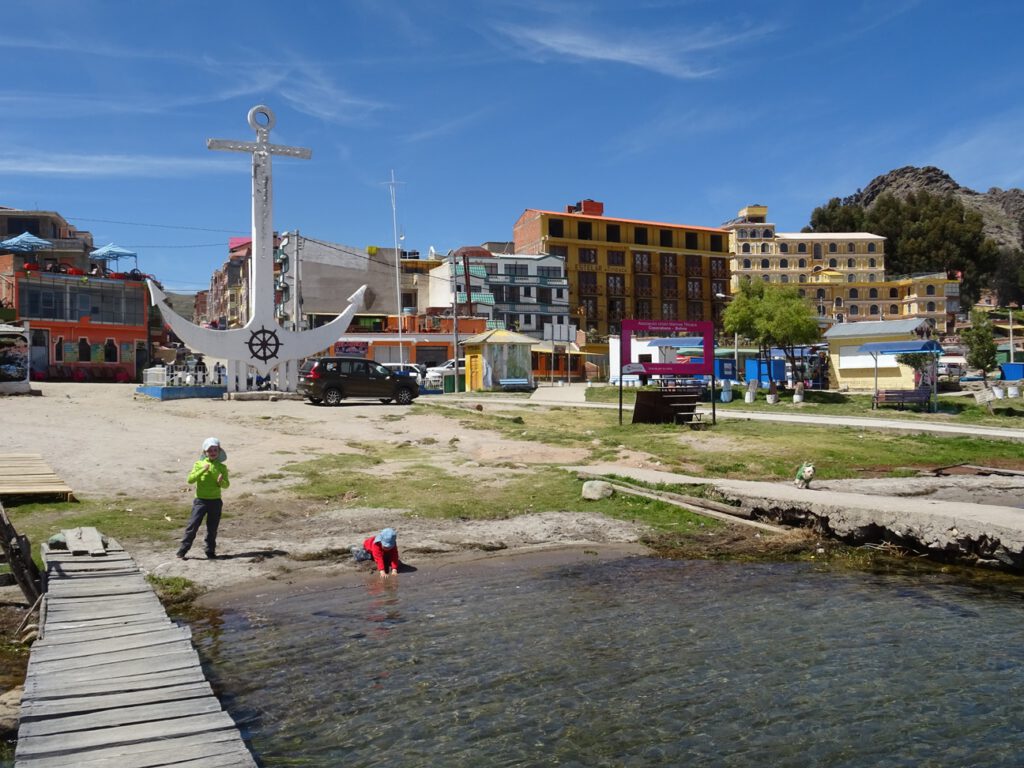
Copacabana is a bit atypical for Bolivian standards. Bolivia has no coast because they lost it in a war against Chile, and the Titicaca lake is their only chance for beach holidays.
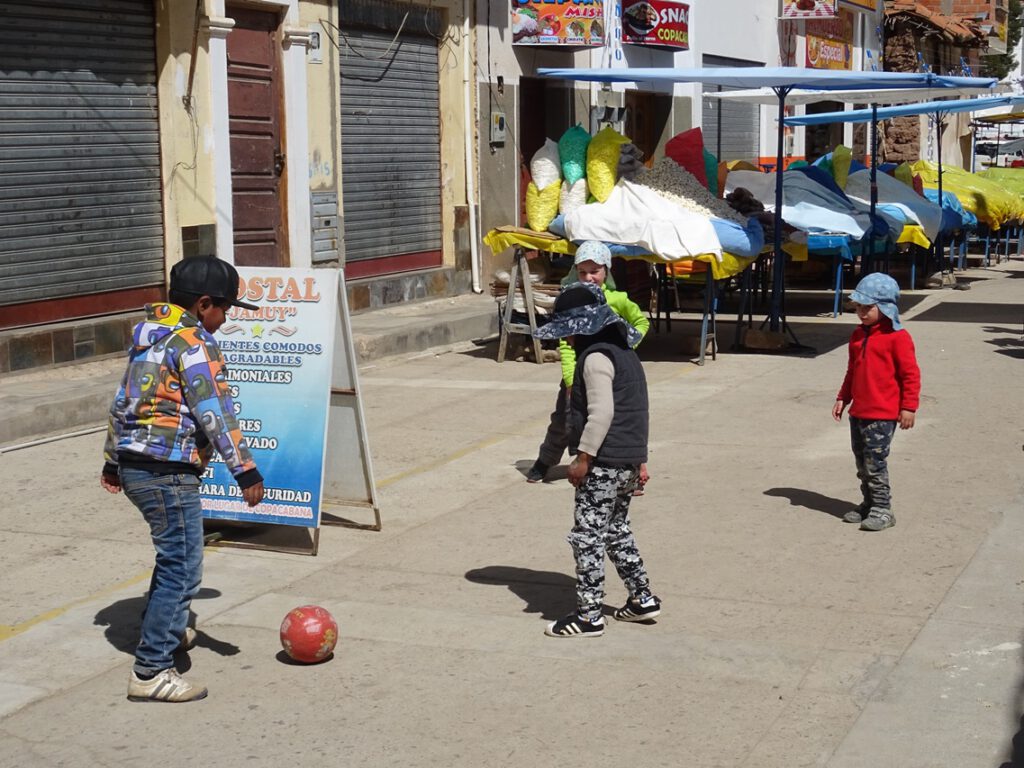
Together with that, the city is barely 150km away from La Paz, so a lot of people from the capital come here on the weekends. Therefore, it is well used to tourism, with plenty of hotels (maybe too many), restaurants, souvenir shops, etc.
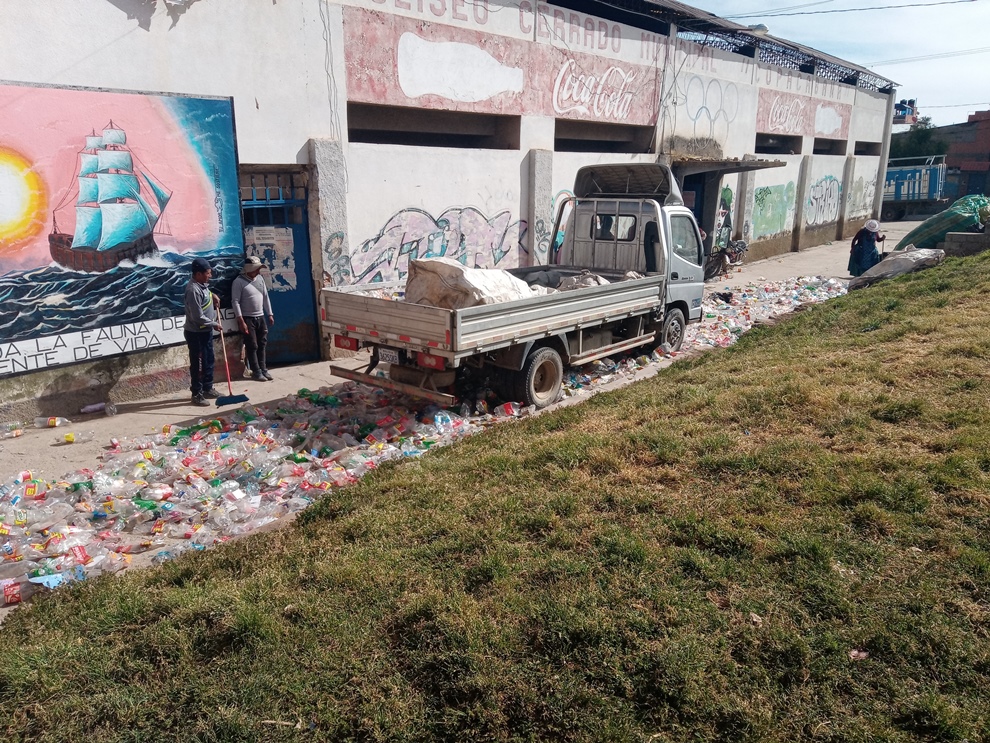
The first night we splurged and stayed in a very nice hotel called Gloria. But since we planned to stay a few more days, we quickly moved to another one even closer to the lake shore but significantly cheaper.
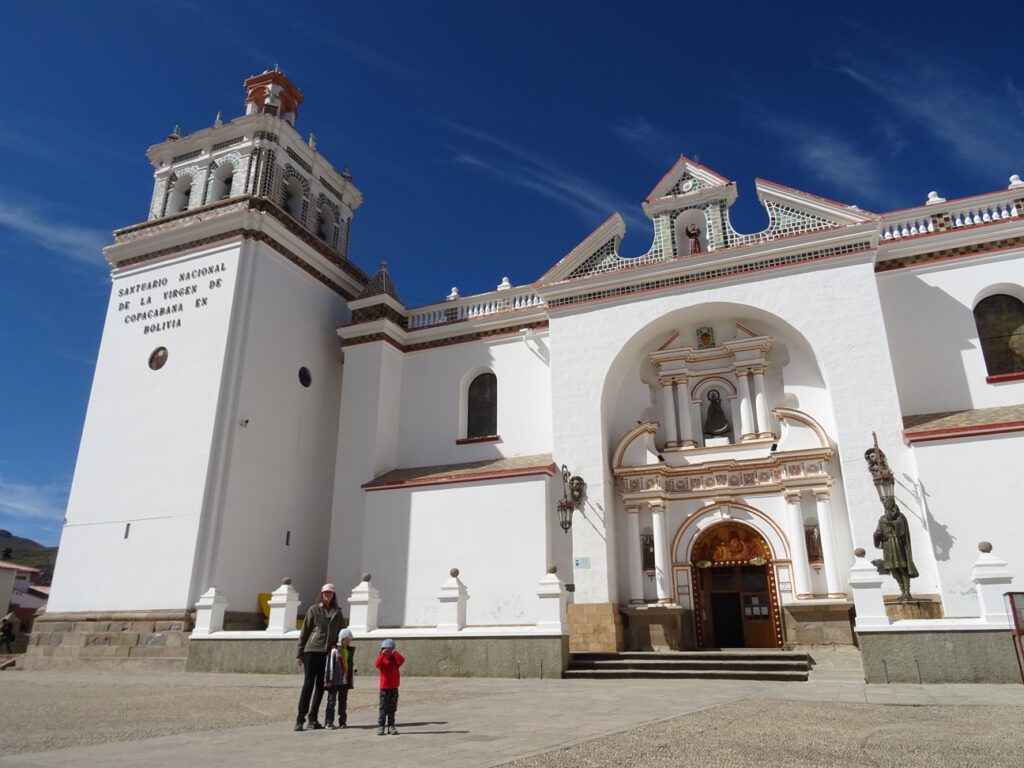
The main activity in Copacabana is to walk up and down Av. 6 de Agosto, where most restaurants and shops are. The market is also quite good for cheap fruits and vegetables, and outside the market you can buy anything that the souvernir shops sell but much cheaper.
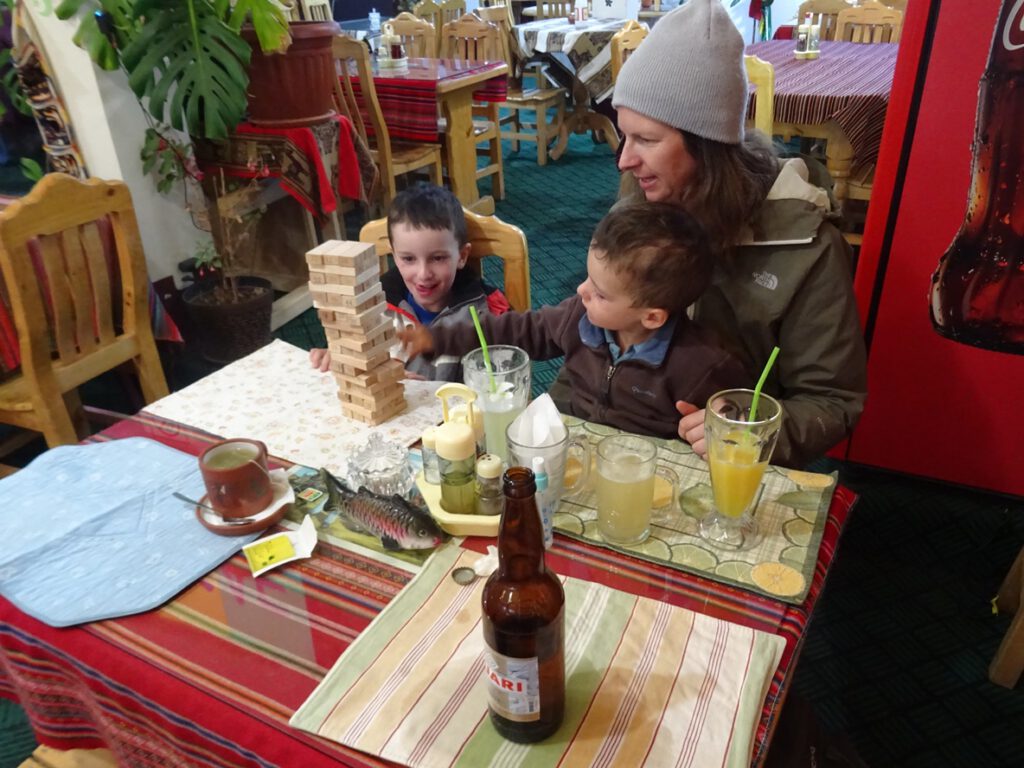
Another thing to do while in there is to climb Cerro el Calvario, a long series of steps to a sanctuary on the top, that gives you excellent views of both Copacabana bay on one side, and the coastline and Sun Island on the other. The kids and Susanne decided not to go, so I could wander freely and enjoy the views before taking the steep path down directly to the harbour.
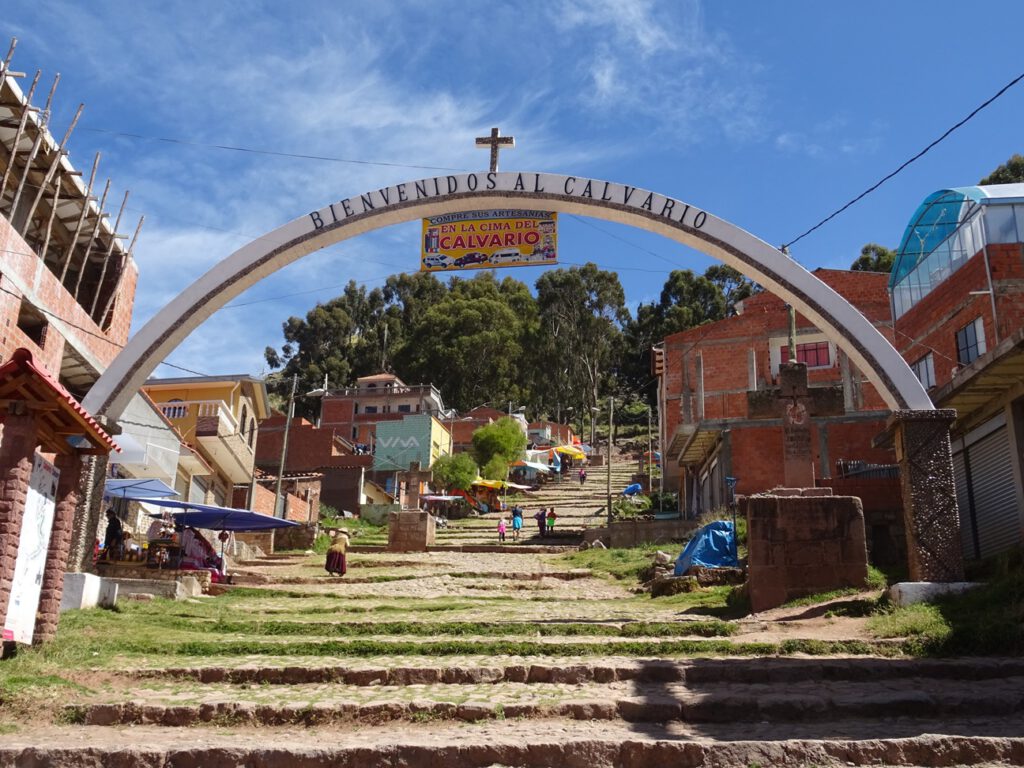
Our plan was to stay longer, but lucky as we are, on the weekend was the festival of the Senor de la Cruz de Colquepata, a huge celebration where literally thousands of people come from all around Bolivia and even Peru to pray, celebrate, dance and get drunk. And this year was the first time after the pandemic that the fest was allowed. So obviously all hotels in Copacabana were fully booked or charged a fortune for the few rooms available.
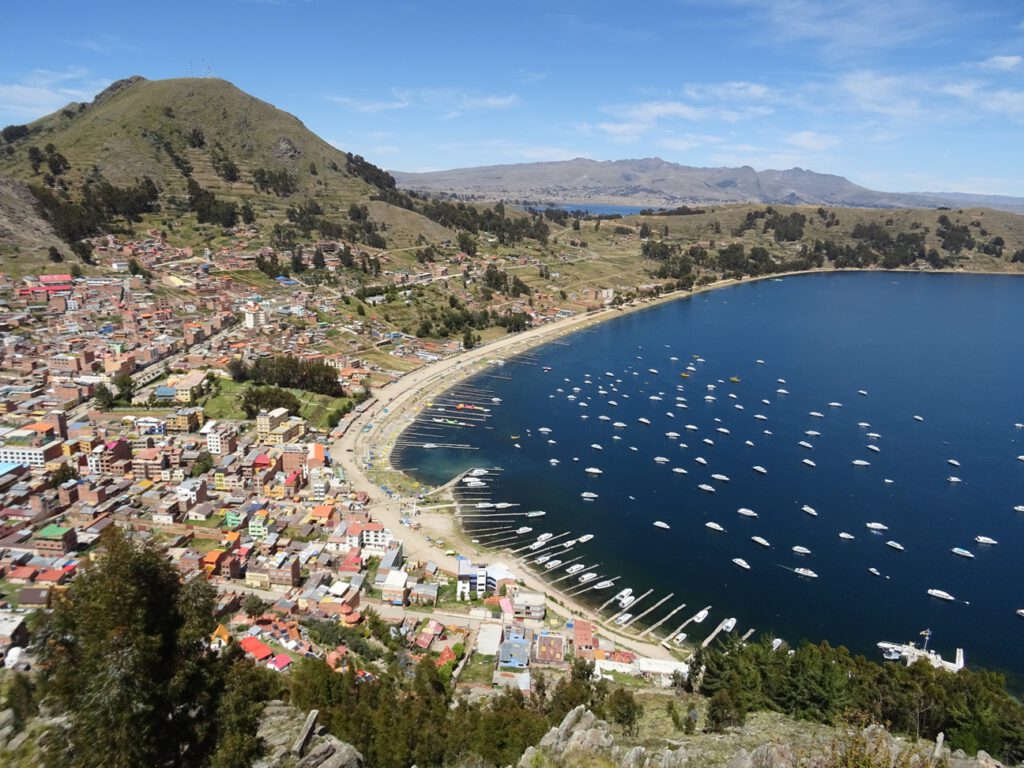
We contemplated wild camping on the beach, but the nights are getting very cold and the possibility of drunkards annoying us in the middle of the night was high. So we planned a much better plan B. We wanted to see the Sun Island, an island just a bit above one hour away from Copacabana with plenty of inca ruins, no cars, and a very relaxed vibe. So we booked the full weekend there, where incidentally the occupation was relatively low because everybody wanted to be in Copacabana.
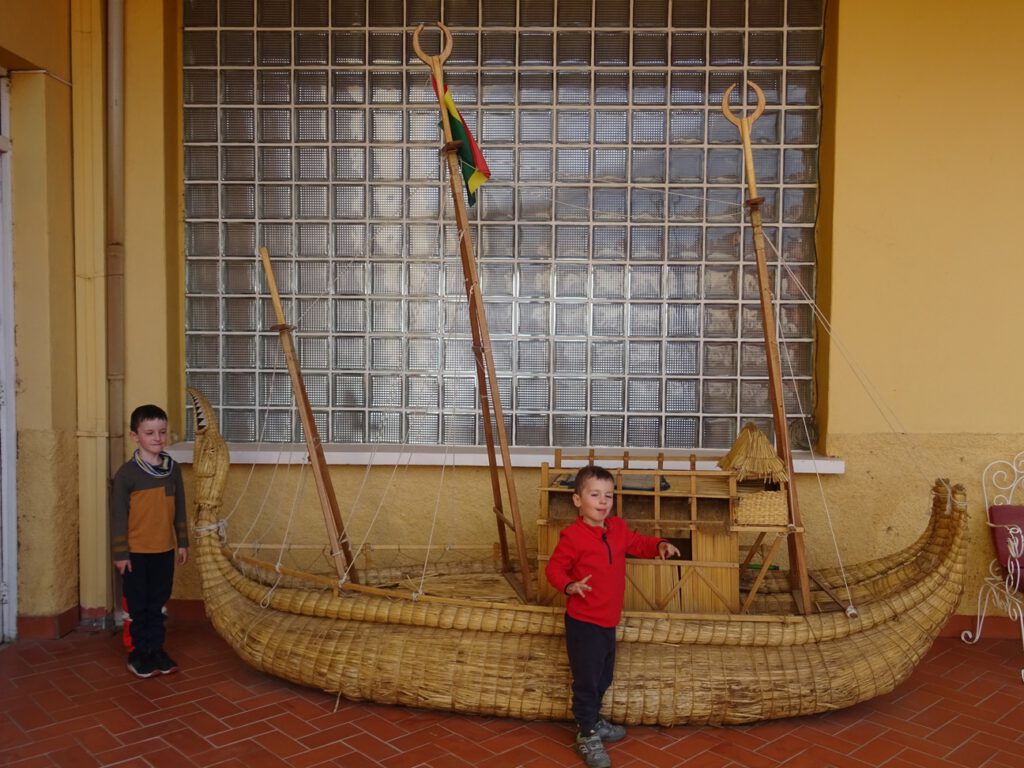
More on that in the next post.
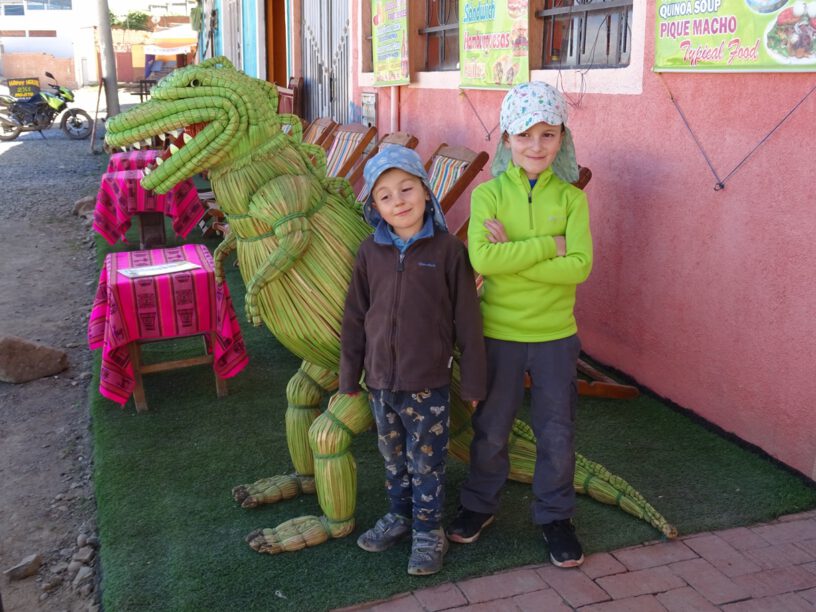
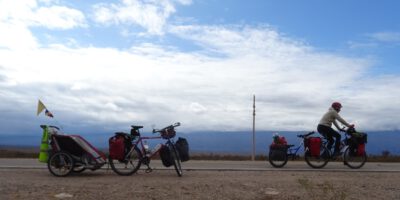
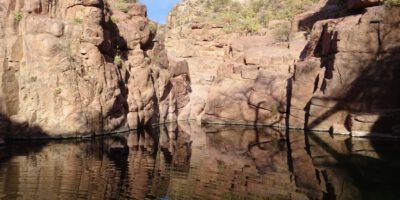
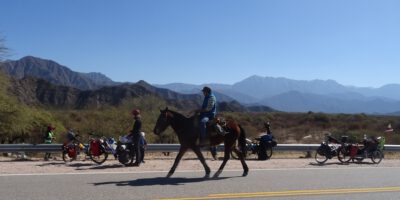
Katherine G
Pues……ese recyclable centre si que hace pensar en el uso excesivo de plastico…o mas bien..en el uso del plastico! 🙁 🙁 . Por cierto, cuando acampan Al aire libre, como aseguran sus bicicletas?
Jose
Normalmente dejamos unidas una bicicleta a otra con un candado de cable. Es bastante simple, pero basta para que alguien no se vaya montado en una bicicleta y tenga que trabajar un poco, lo suficiente para despertarnos. Las bolsas se suelen quedar en la bicicleta, lo que las hace además bastante complicadas de manejar para quien no esté acostumbrado.